The wine industry has seen a significant shift towards sustainability, reflecting a broader societal move towards more eco-conscious consumption.
As wine enthusiasts and casual drinkers alike become more attuned to the environmental impact of their choices, the demand for sustainable wine brands has risen markedly.
This post explores some of the finest and most unique eco-friendly and sustainable wineries from premier wine regions around the globe.
By choosing these eco-friendly options, consumers not only enjoy exquisite tastes but also contribute positively to the planet.
What Makes a Winery Sustainable?
Sustainable winemaking refers to practices that are environmentally responsible, socially beneficial, and economically viable.
These practices can range from using organic methods to manage vineyards, employing biodynamic farming techniques, to implementing advanced water and energy-saving technologies in the winery.
Sustainable winemaking often involves:
- Organic Farming: No synthetic pesticides or fertilizers are used, promoting a healthier vineyard ecosystem.
- Biodynamic Practices: These go beyond organic farming by treating the vineyard as a self-sustaining ecosystem.
- Minimal Intervention: Reducing the use of chemicals and additives in the winemaking process to let the natural qualities of the grapes shine through.
These practices not only help in conserving the environment but also ensure that the wine is of the highest quality, free from unwanted chemicals, and produced in a way that benefits the local community and economy.
Sustainable Wineries in Europe
Château Pontet-Canet (France)
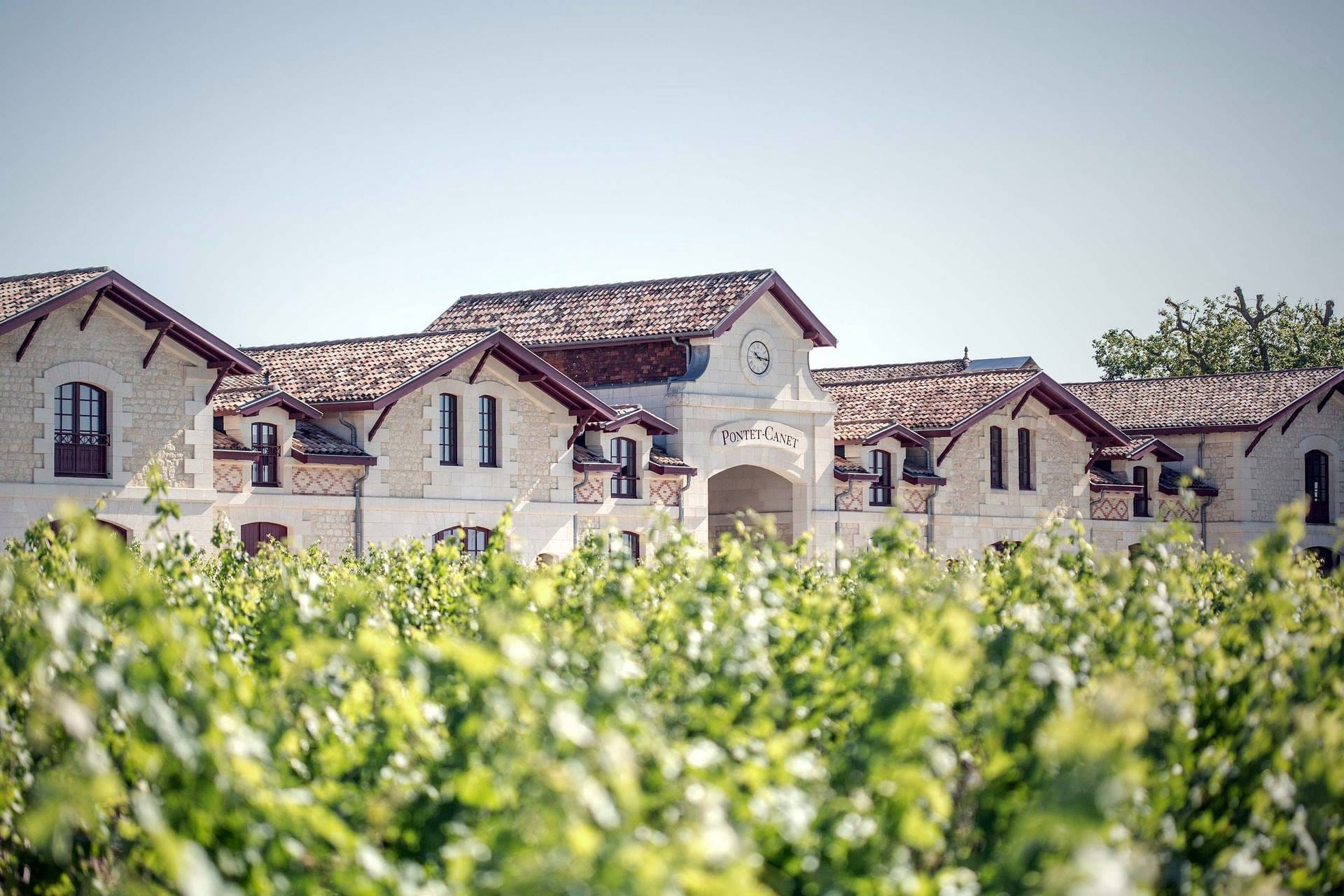
Located in the prestigious Pauillac region of Bordeaux, Château Pontet-Canet is a pioneer in biodynamic and organic viticulture in France. Since converting to biodynamic practices in the early 2000s, the estate has focused on enhancing soil vitality and overall vine health naturally.
The use of horses instead of tractors to plow the vineyards helps to avoid soil compaction, which benefits the vines' root systems and, consequently, the grapes' quality.
Their commitment to sustainability extends to their winemaking process, employing natural yeasts and minimizing the use of new oak to preserve the wine's true expression.
Avignonesi (Italy)
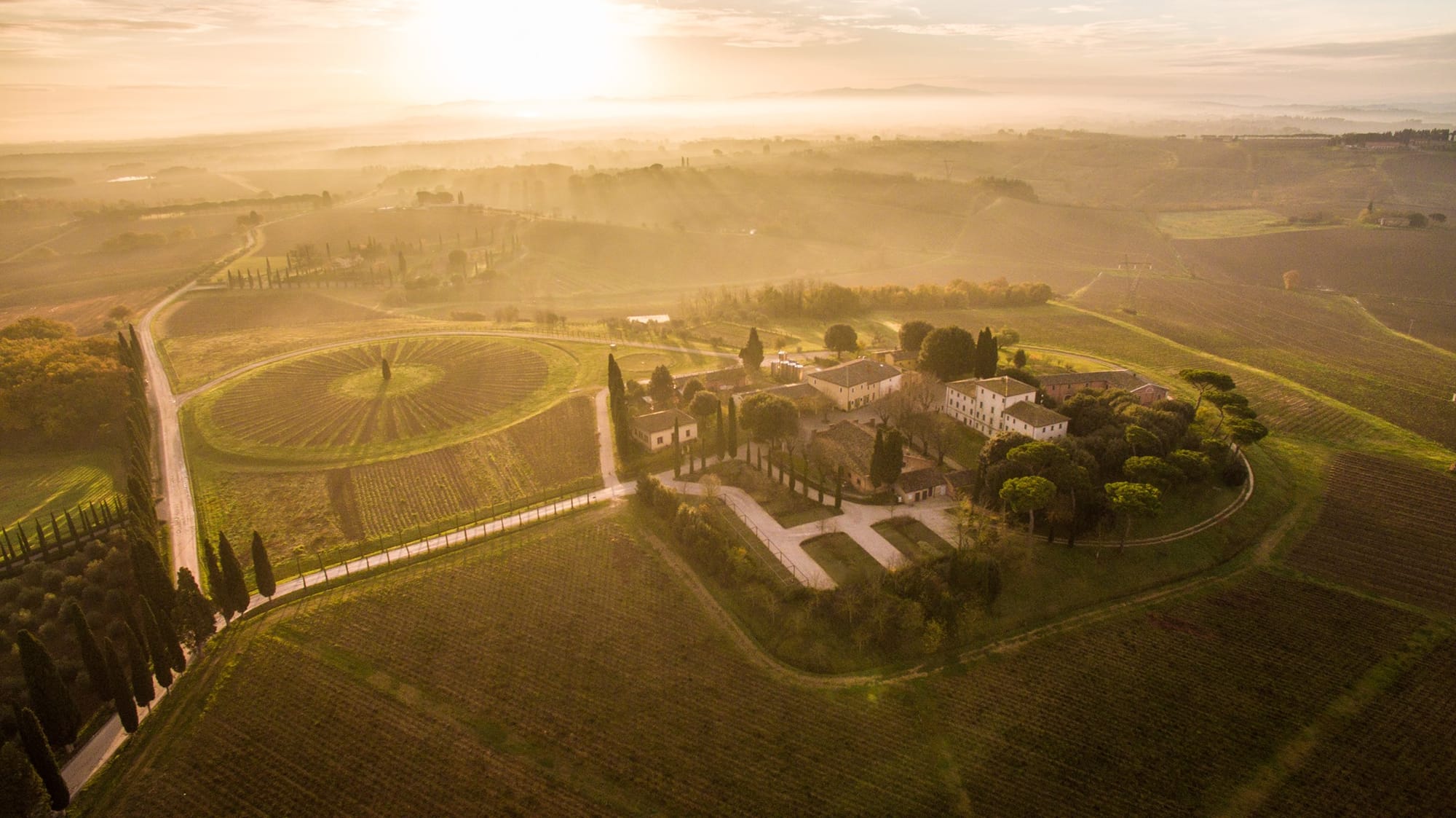
Avignonesi, located in Montepulciano, embraces a holistic approach to winemaking. This Tuscan winery converted to biodynamic farming to produce wines that are as natural as possible and reflect the rich terroir of the region.
Their vineyards are managed without chemical pesticides or fertilizers, using only natural preparations and composts.
Avignonesi’s philosophy is rooted in sustainability and respect for nature, which shines through in their flagship Vino Nobile di Montepulciano, renowned for its complexity and elegance.
Domaine Zind-Humbrecht (France)
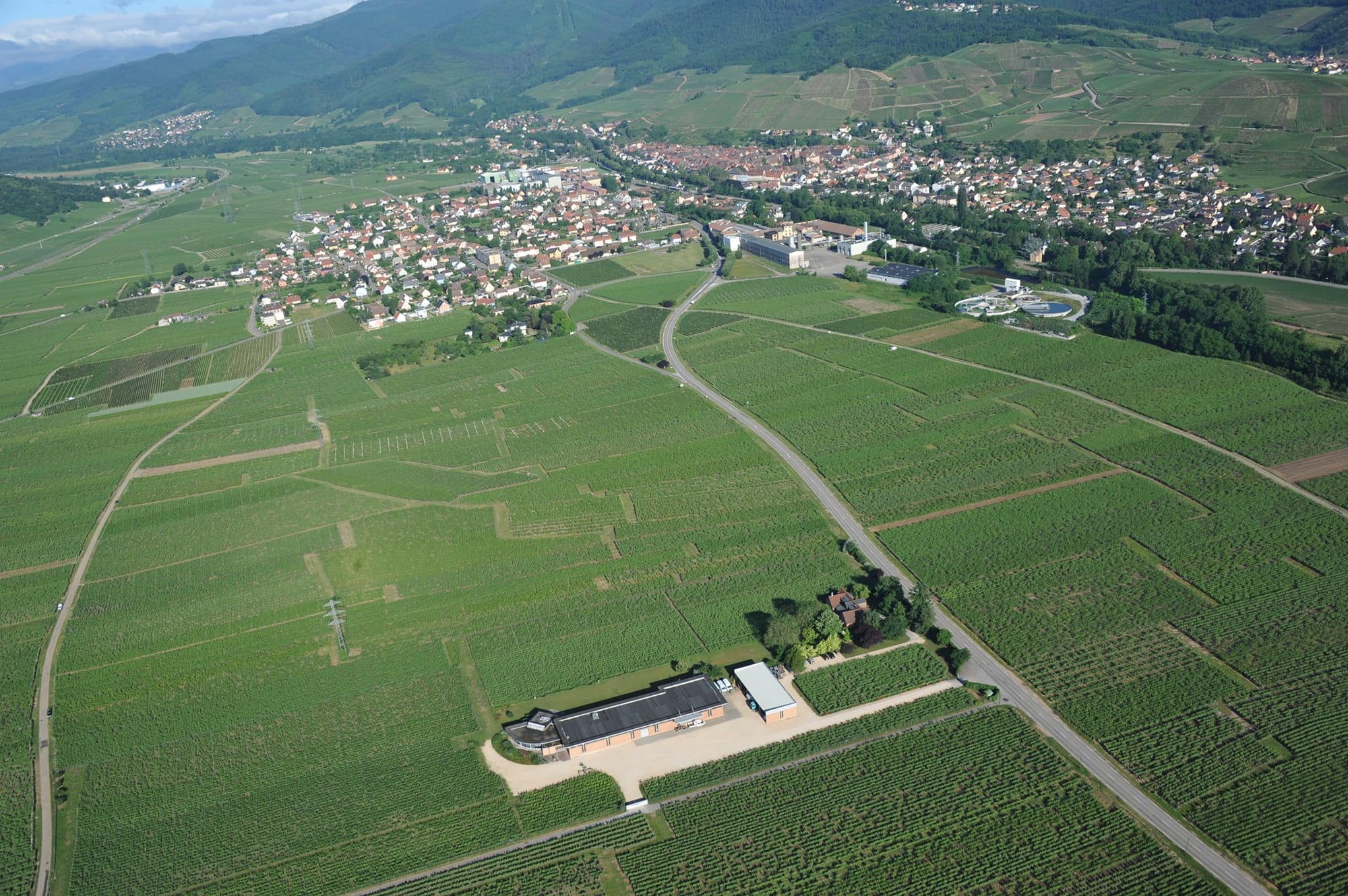
Domaine Zind-Humbrecht stands as a beacon of biodynamic viticulture in Alsace, France. Founded in 1959, the estate quickly adopted organic farming practices by 1997 and transitioned to full biodynamic certification by 2002.
Under the guidance of Olivier Humbrecht, one of the first French winemakers to qualify as a Master of Wine, the domaine emphasizes the importance of terroir and minimal intervention in both vineyard and cellar.
Zind-Humbrecht's vineyards are cultivated without synthetic chemicals, relying on natural preparations and composts to enhance soil health and vine strength.
This meticulous care fosters a deep expression of varietal character, particularly in their world-renowned Rieslings, Gewürztraminers, and Pinot Gris.
The winery is renowned for its rigorous standards and commitment to showcasing the unique qualities of each vineyard plot, producing wines that are not only complex and rich but also clear representations of Alsace's diverse terroirs.
Their approach not only preserves the environment but also enhances the wine's quality, offering a pure taste of their distinctive landscapes.
Bodegas Muga (Spain)
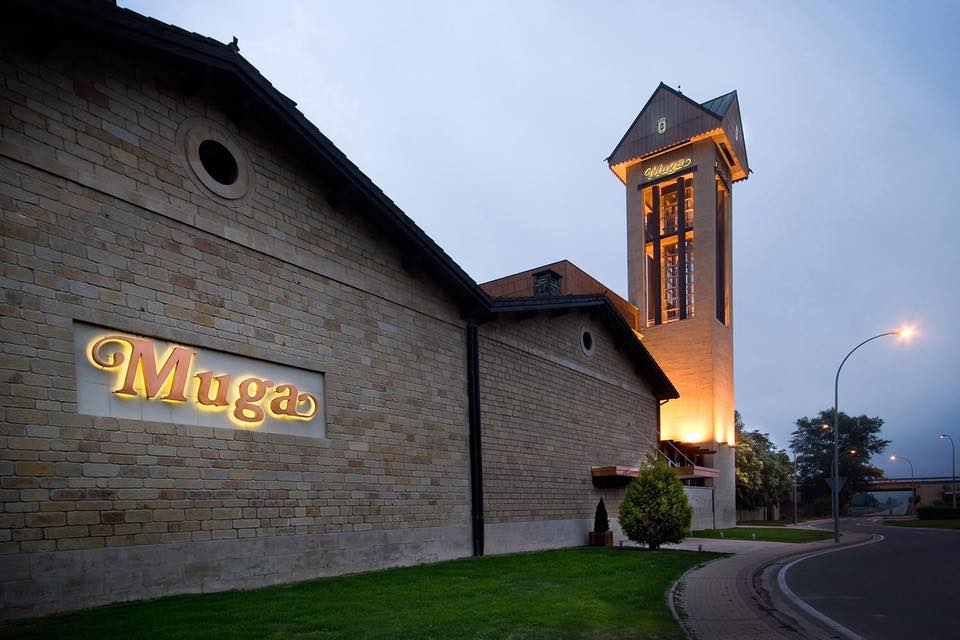
Bodegas Muga is located in the Rioja region and stands out for its integration of traditional winemaking techniques with modern sustainability efforts. They use organic farming methods and focus on maintaining the health of their vineyard ecosystem.
The winery utilizes gravity-flow systems to minimize energy use during production, and their wines are fermented using indigenous yeasts.
Bodegas Muga’s commitment to quality and sustainability can be tasted in their richly flavored and beautifully balanced wines.
Quinta do Vallado (Portugal)
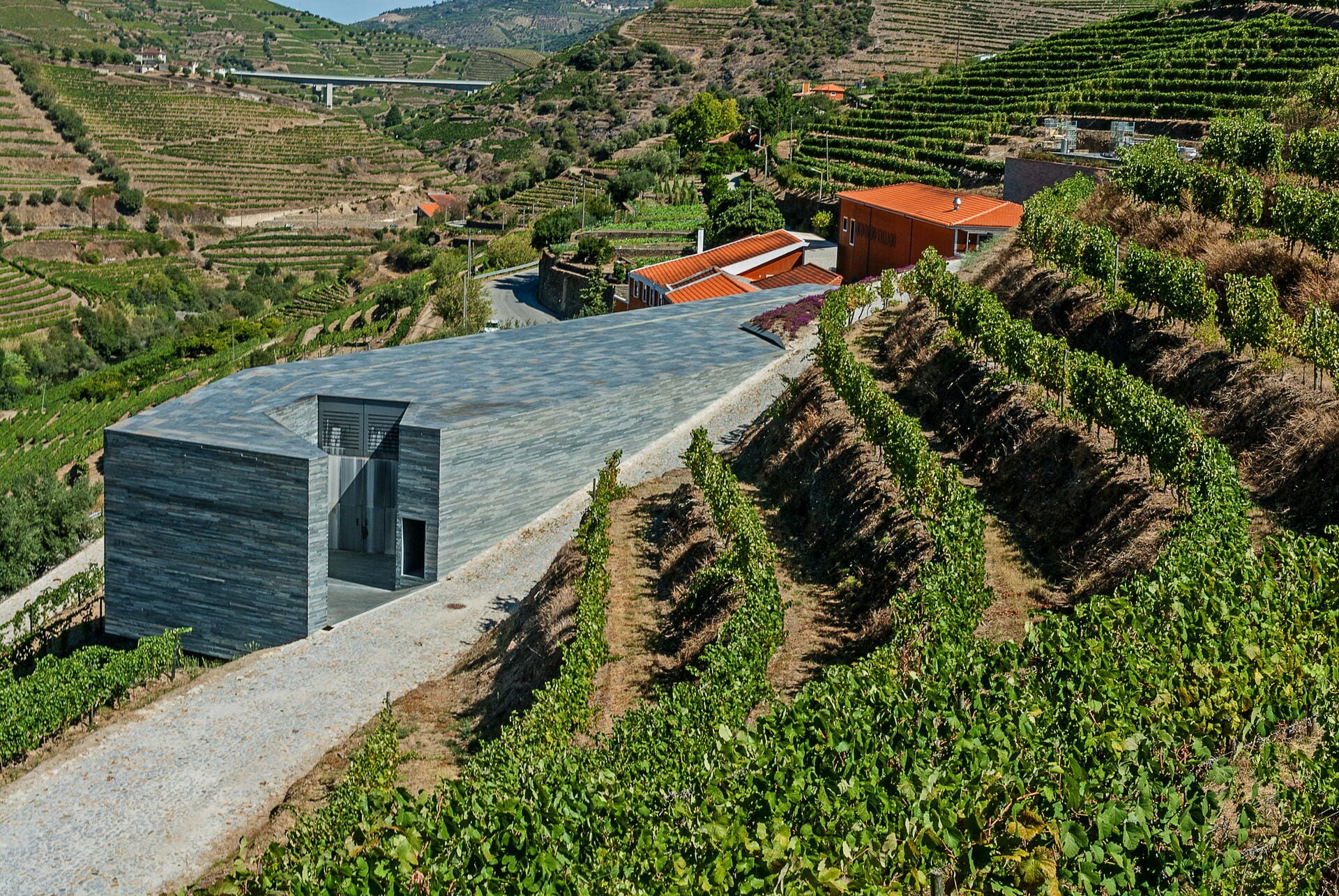
Established in 1716, Quinta do Vallado is one of the oldest and most famous estates in the Douro Valley. The winery combines centuries-old traditions with modern sustainable practices, including organic viticulture and solar power to run their operations.
Quinta do Vallado’s vineyards are meticulously cared for without the use of harmful chemicals, ensuring the production of high-quality grapes. Their wines, particularly the robust reds, are celebrated for their depth, intensity, and reflection of the unique Douro terroir.
Each of these wineries not only champions sustainable practices in their vineyard management and wine production but also actively contributes to preserving their respective regions' viticultural heritage.
Their commitment to eco-friendly methods ensures that the wine industry can sustain itself and the environment for future generations.
Sustainable Wineries in the United States
Silver Oak Cellars (California)
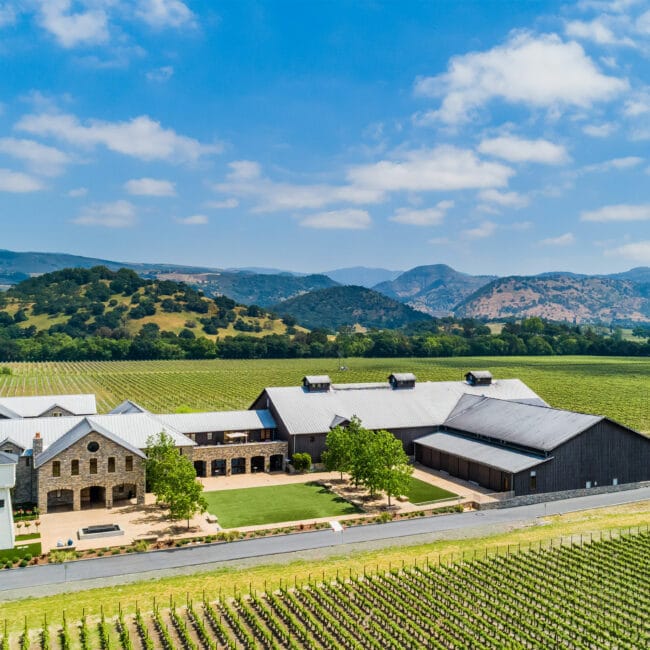
Silver Oak is located in California’s Napa Valley and is renowned for its commitment to sustainability. The winery was one of the first to have its facilities LEED certified, reflecting its dedication to energy efficiency and sustainable building practices.
Silver Oak exclusively produces Cabernet Sauvignon, focusing on achieving the best expression of this varietal through sustainable vineyard practices.
They utilize reclaimed water, solar energy, and have established an extensive recycling program.
Sokol Blosser Winery (Oregon)
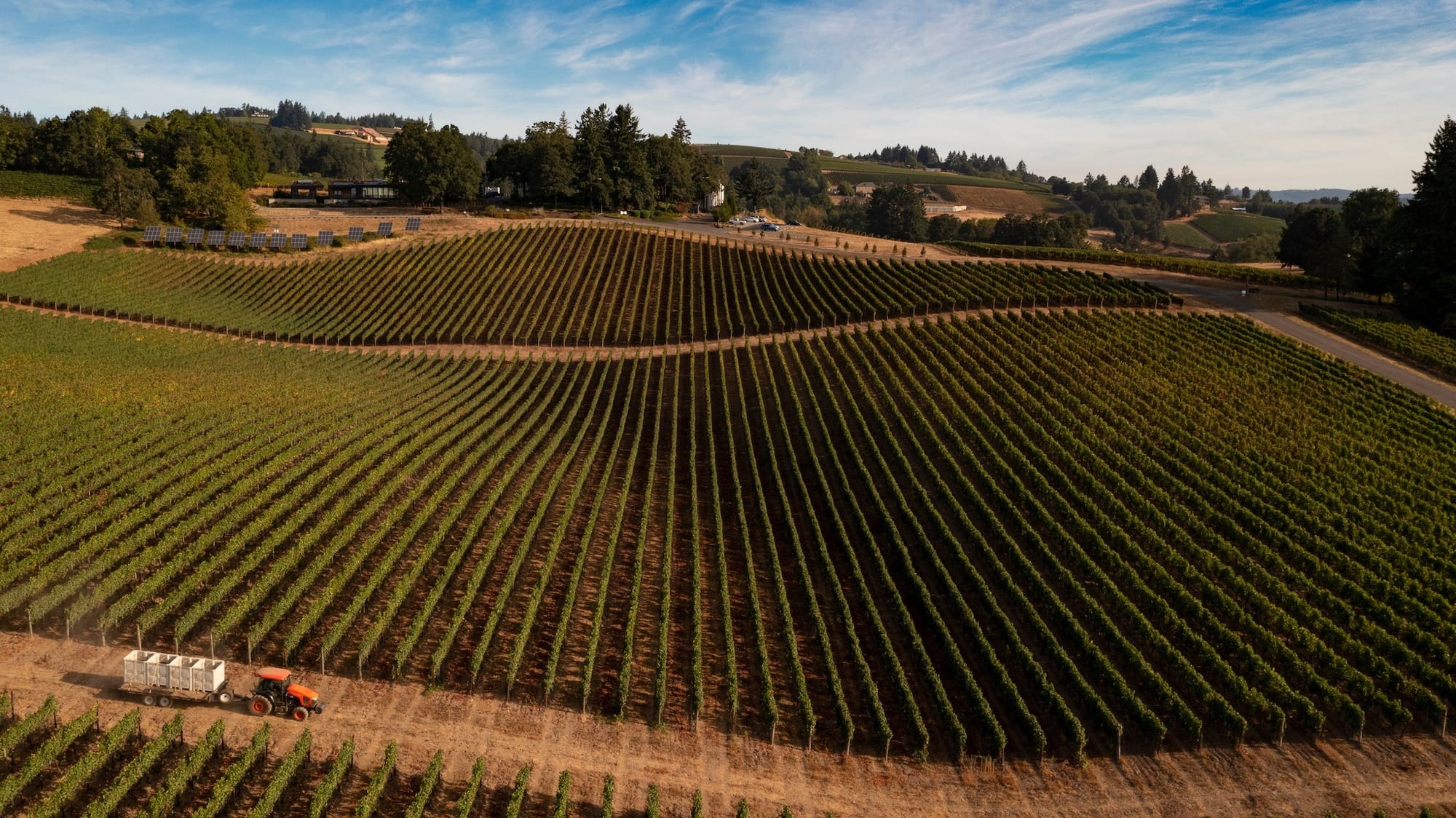
Sokol Blosser Winery, one of the pioneers of the Oregon wine industry, has been practicing organic farming since the late 1990s and was certified organic by 2002.
Located in the Willamette Valley, known for its excellent Pinot Noir, Sokol Blosser has taken significant steps towards minimizing its environmental impact, including the construction of the first LEED-certified cellar in the U.S.
Their wines are a testament to the quality that can be achieved through conscientious farming and production methods.
Tablas Creek Vineyard (California)
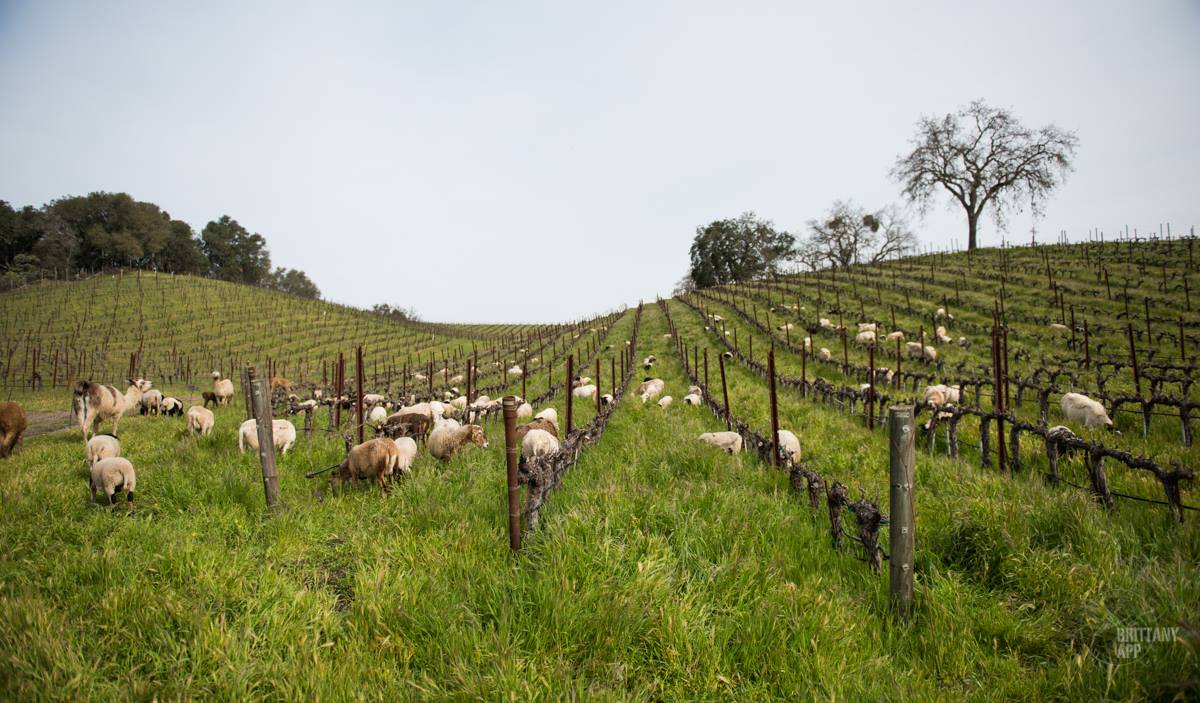
Tablas Creek Vineyard is a leader in organic and biodynamic winemaking in Paso Robles, California. They are certified organic and also adhere to biodynamic farming principles, emphasizing a holistic approach to agriculture.
Tablas Creek co-founded the Regenerative Organic Alliance, a certification focusing on soil health, animal welfare, and farmworker fairness.
Their wines, especially Rhône varietals, are celebrated for their depth, purity, and expressiveness.
Frog's Leap (California)
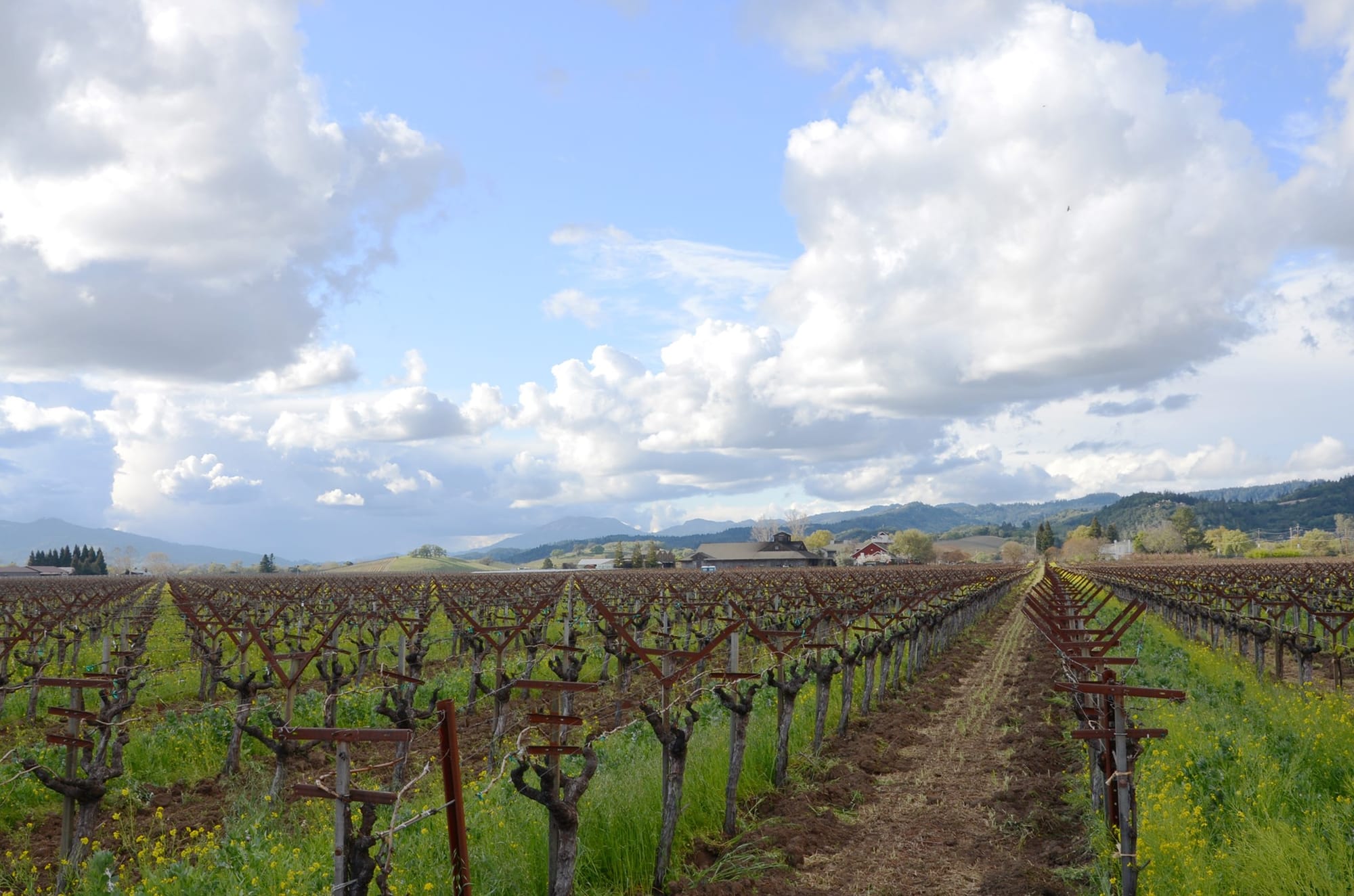
Frog's Leap is based in Rutherford, in the Napa Valley, and has been at the forefront of organic farming and sustainable winemaking since its inception in 1981.
Frog's Leap produces a range of wines, including Zinfandel, Merlot, and Sauvignon Blanc, made from organically grown grapes and without the use of artificial fertilizers or pesticides.
The winery is also known for its water conservation efforts and dry farming techniques, which help to produce more concentrated and flavorful grapes.
Benziger Family Winery (California)
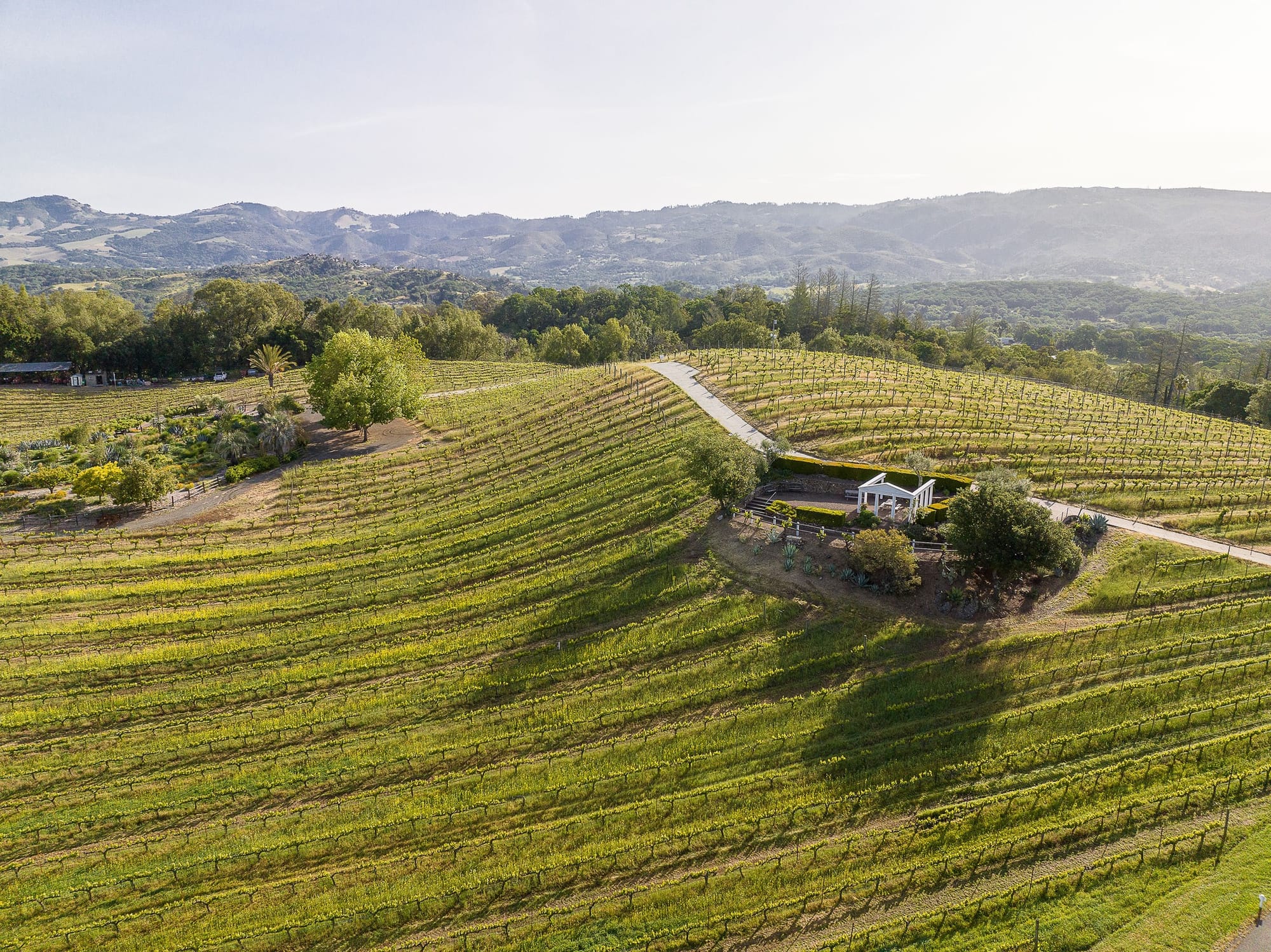
Benziger Family Winery, located in Sonoma County, practices certified Biodynamic, organic, and sustainable farming methods.
They are committed to not only producing high-quality wines but also to farming techniques that reflect their care for the environment.
Benziger uses cover crops, composting, and habitat preservation to enhance soil vitality and vine health.
Their wines are known for reflecting the unique terroir of their vineyards, thanks to their meticulous, earth-friendly winegrowing practices.
Sustainable Wineries in South America
Emiliana Organic Vineyards (Chile)
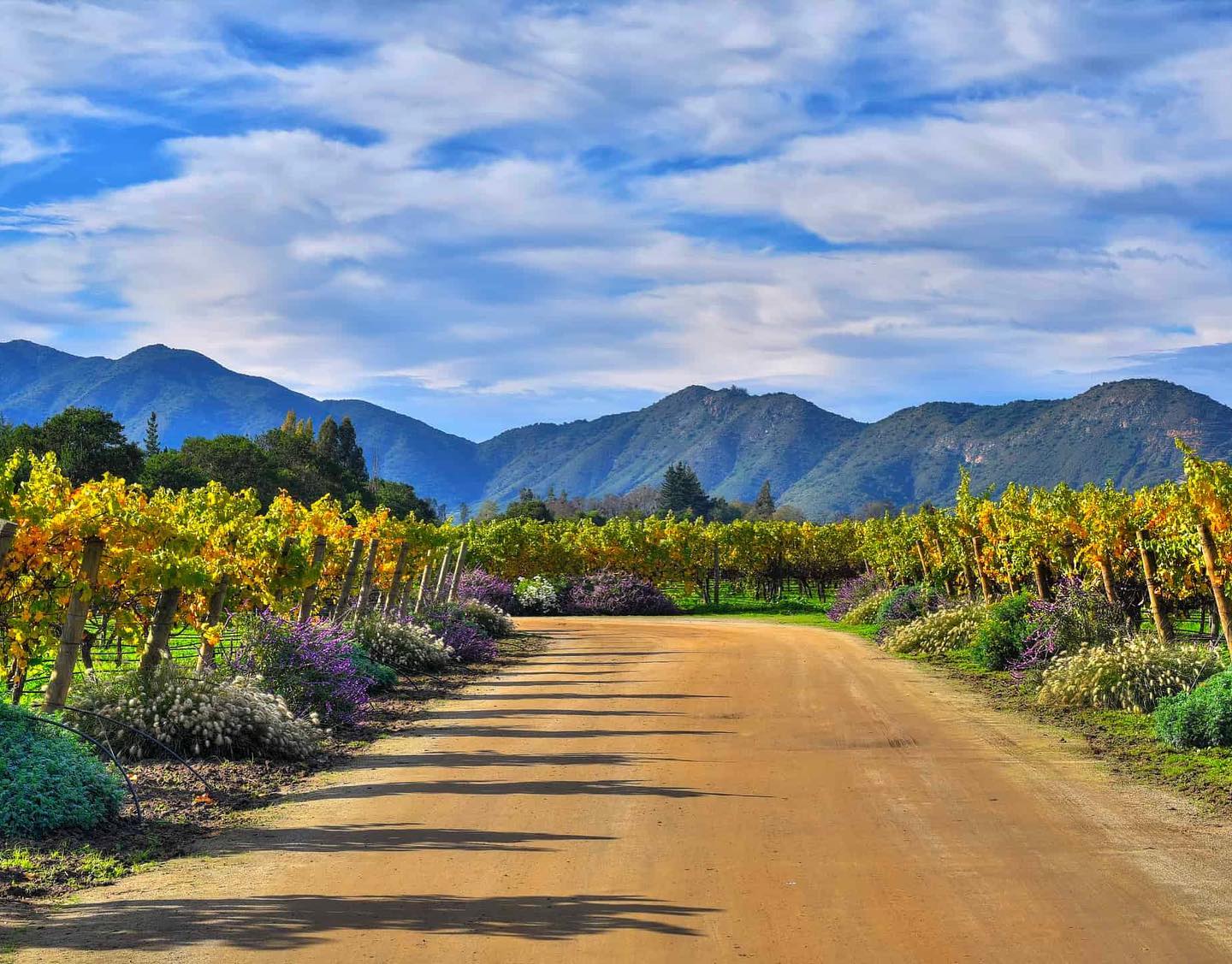
Emiliana Organic Vineyards is one of the world's largest organic wine producers, located in Chile's renowned Valle Central.
They are fully certified organic and biodynamic, emphasizing natural, sustainable farming practices.
Emiliana's approach includes the use of cover crops, biodynamic preparations, and natural pest management systems to maintain the health of their vineyards.
Their wines, such as the popular Coyam and Novas lines, are acclaimed for their purity, quality, and environmental integrity.
Bodega Catena Zapata (Argentina)
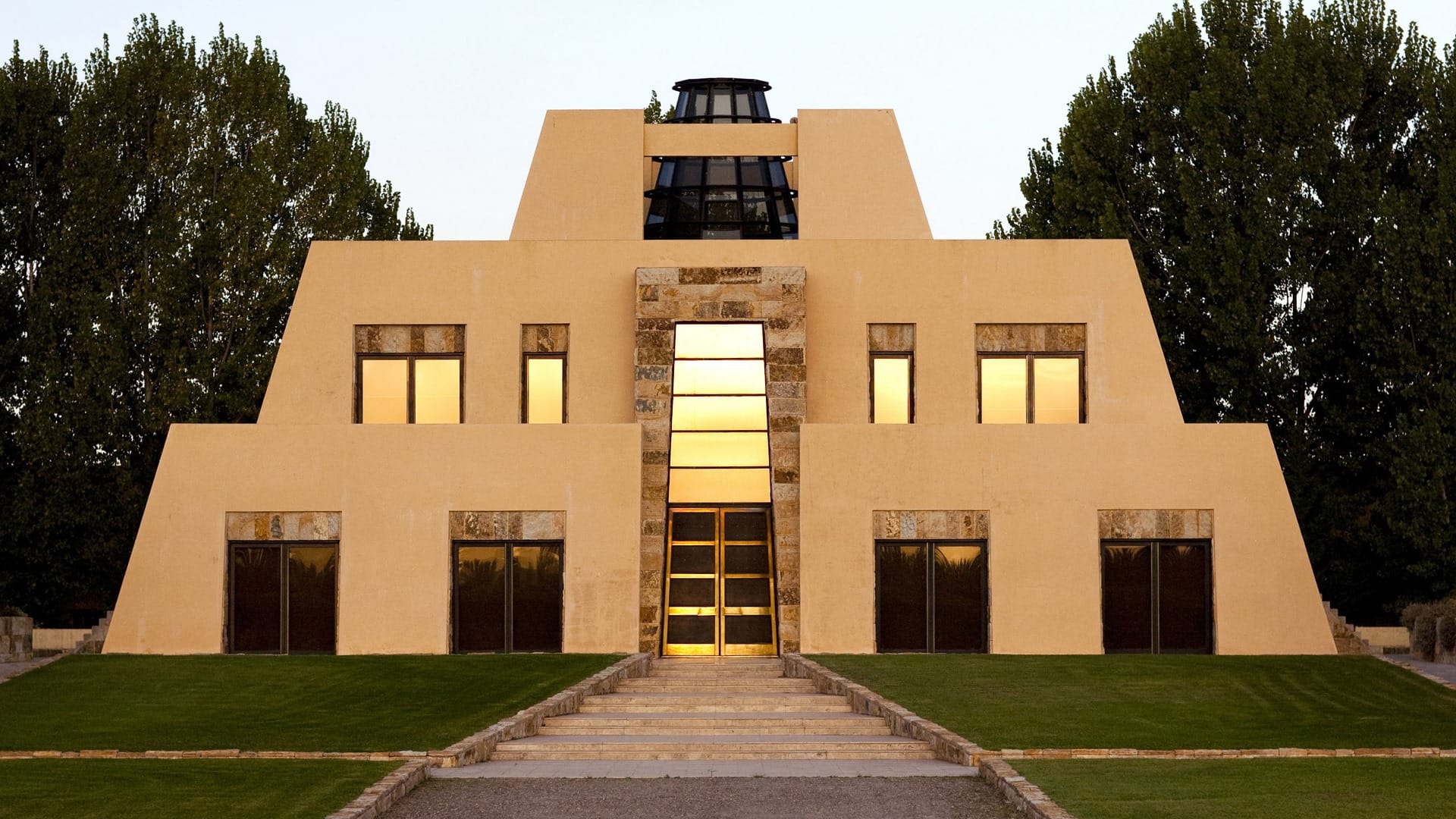
Bodega Catena Zapata, a family-run winery in Mendoza, Argentina, is a pioneer in both high-altitude viticulture and sustainable wine production practices.
The Catena family has implemented sustainable farming methods across their vineyards, including water conservation, soil management, and the preservation of local biodiversity.
Their extensive research into adapting to climate change has positioned them as leaders in sustainable winemaking in South America.
Viña Cono Sur (Chile)
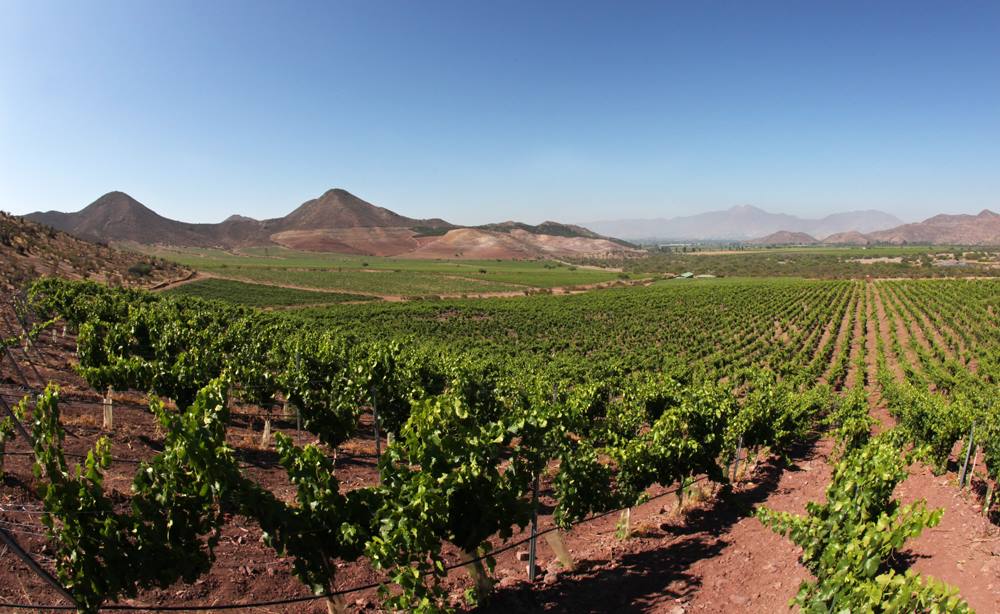
Viña Cono Sur in Chile's Colchagua Valley is committed to producing expressive and innovative wines through eco-friendly practices.
The vineyard is recognized for its distinctive bicycle emblem, symbolizing the staff's method of transportation around the vineyards, helping to reduce their carbon footprint.
They employ organic and biodynamic farming methods extensively across their vineyards, focusing on sustainable growth and minimal environmental impact.
Viu Manent (Chile)
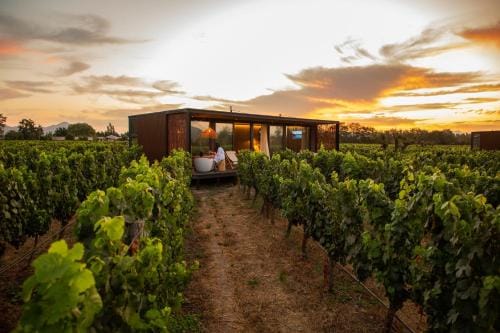
Viu Manent, a family-owned winery in Chile’s Santa Cruz region, has been actively working towards sustainability through various initiatives. They focus on water management, energy efficiency, and recycling programs.
Viu Manent is committed to sustainable viticulture practices, ensuring that their cultivation methods preserve the local environment and contribute to the ecosystem's health.
Bodega Garzón (Uruguay)
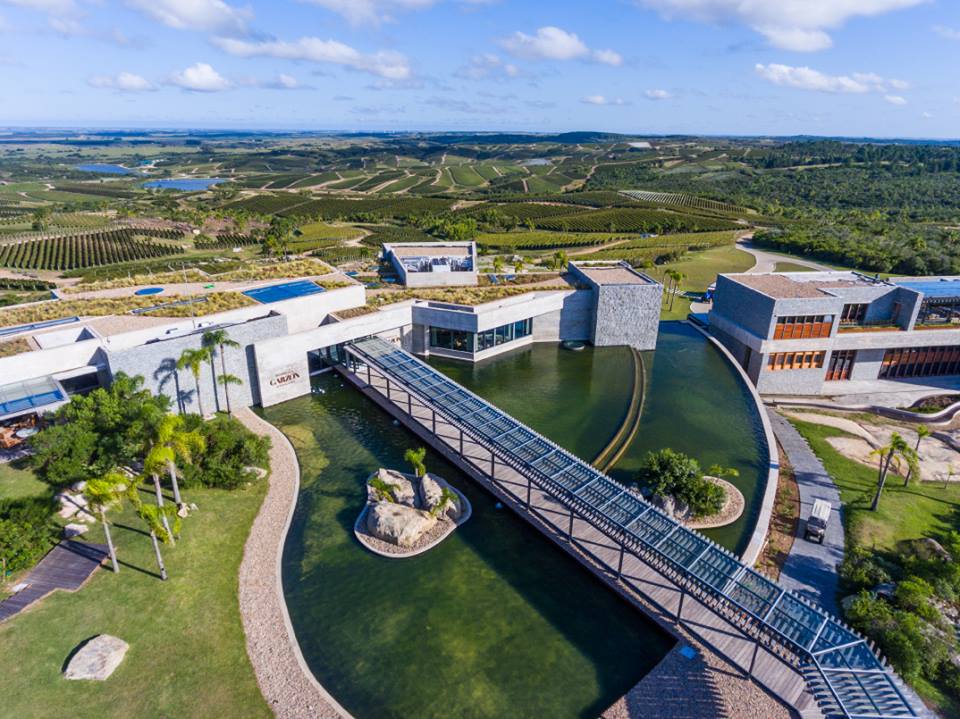
Bodega Garzón near Punta del Este, Uruguay, is another exemplar of sustainability in South America. The winery prides itself on sustainable construction and operation, including being LEED certified.
Their commitment extends to the vineyards, where sustainable agriculture practices are employed to maintain the balance of the local ecosystem.
Bodega Garzón is well-regarded for producing premium wines that reflect the unique terroir of Uruguay, utilizing indigenous grape varieties and innovative winemaking techniques.
Sustainable Wineries in Africa
Castel Winery (Ethiopia)
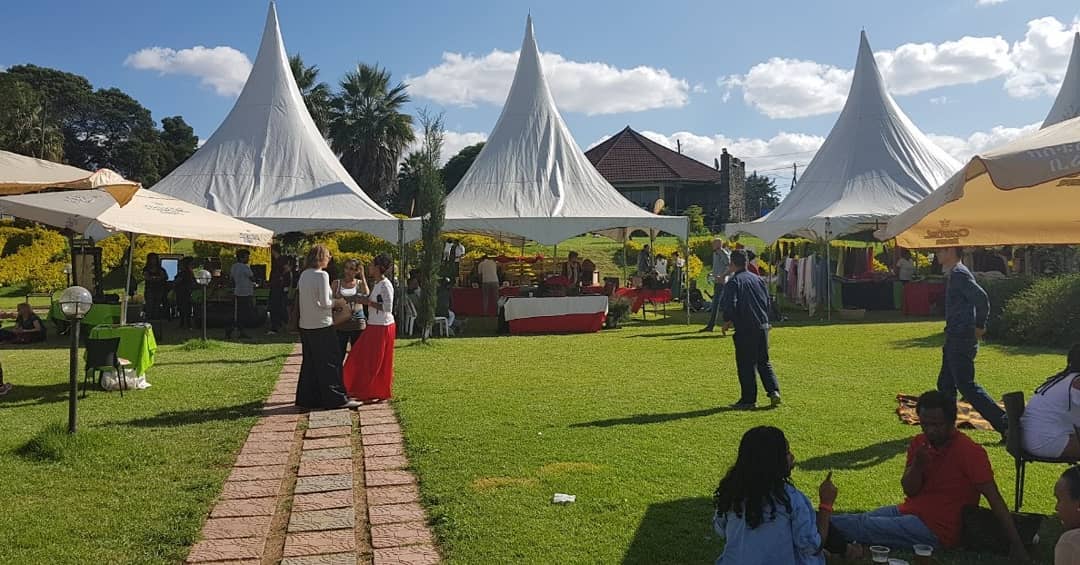
Castel Winery practices sustainable agriculture in one of the world’s most unique terroirs. The winery makes efforts to implement environmentally friendly practices, including water conservation and integrated pest management.
This initiative reflects an increasing awareness and commitment to sustainable practices within Ethiopia's burgeoning wine industry.
Spier Wine Farm(South Africa)
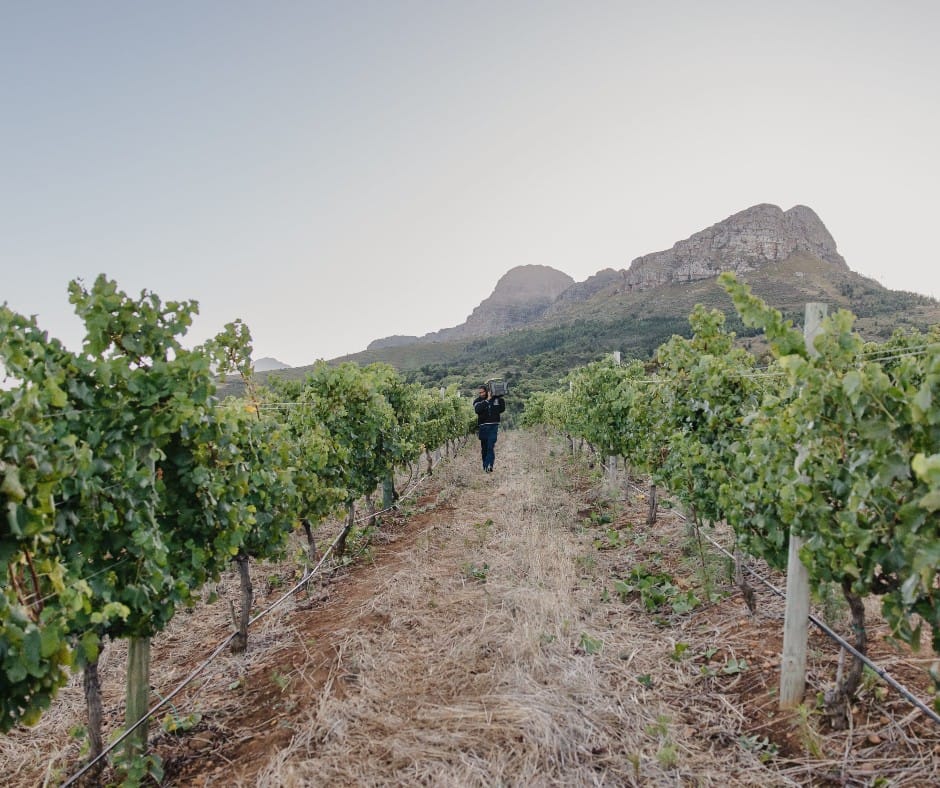
Spier Wine Farm in Stellenbosch is one of South Africa's oldest wineries and has been a pioneer in sustainable winemaking. Spier has committed to organic and biodynamic practices and has achieved organic certification for many of its vineyard blocks.
The farm is also deeply involved in community and conservation projects, including wastewater recycling and a tree-planting program to offset carbon emissions.
Reyneke Wines(South Africa)
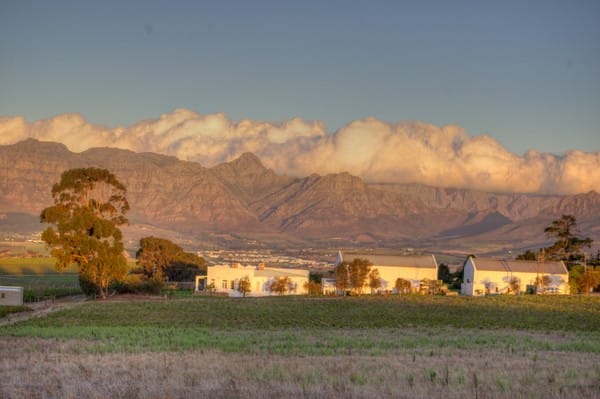
Reyneke Wines, based in Stellenbosch, was the first winery in South Africa to be certified both biodynamic and organic.
Reyneke adopts a holistic approach to farming, which includes natural pest management strategies and the use of biodynamic preparations and composts to enrich the soil.
Their focus on preserving the natural ecology leads to vibrant, expressive wines that capture the essence of their environment.
Avondale Wine(South Africa)
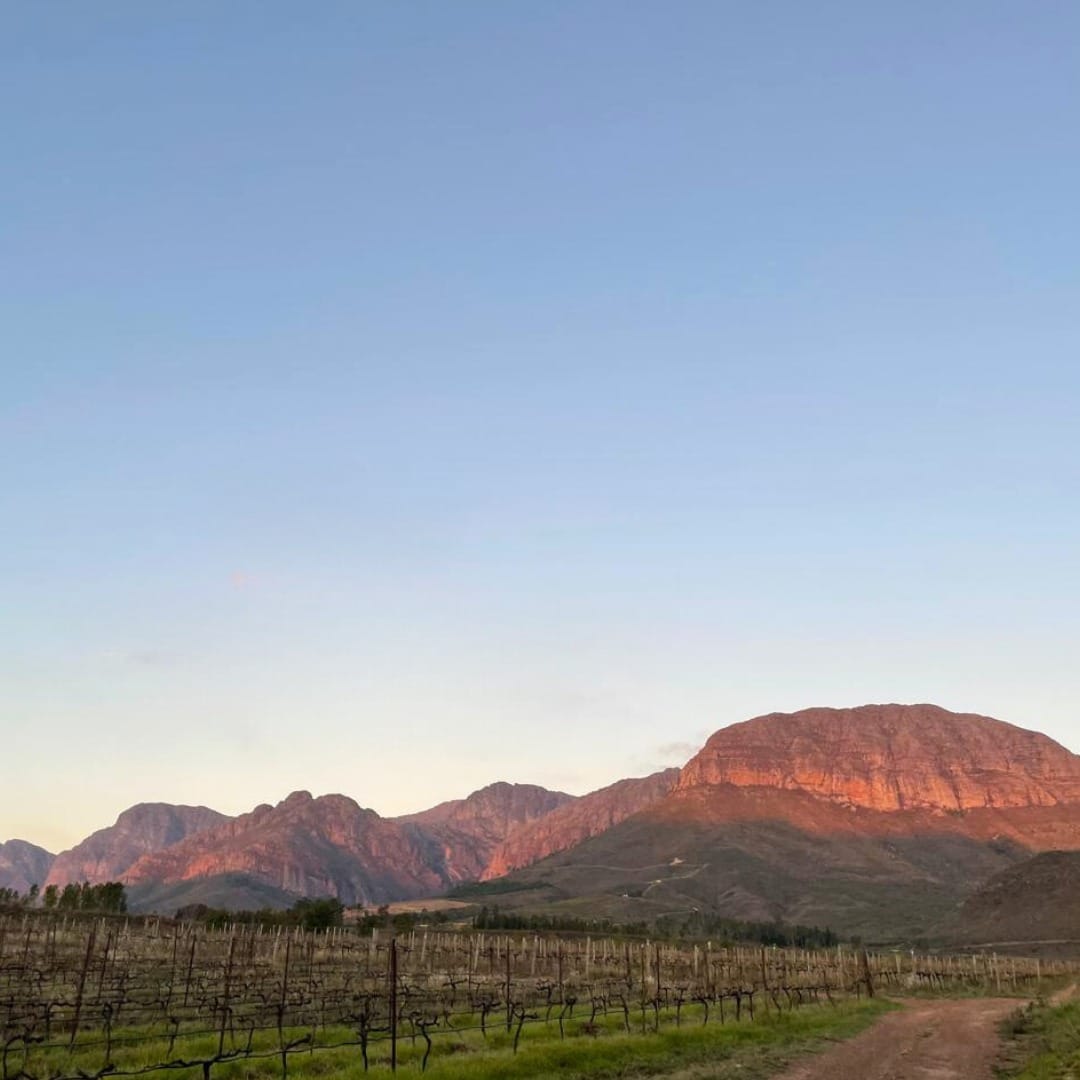
Avondale Wine in the Paarl region uses biodynamic and organic principles to cultivate its vineyards. The estate employs natural methods to manage the land and its resources, such as using ducks to control snails and pests in the vineyards.
Avondale's commitment to sustainability extends to its use of natural yeast in the winemaking process and a gravity-fed system that minimizes energy use.
These wineries not only produce high-quality wines but also lead the way in sustainable and ethical winemaking practices in Africa, demonstrating a strong commitment to the environment and their local communities.
Backsberg Cellars
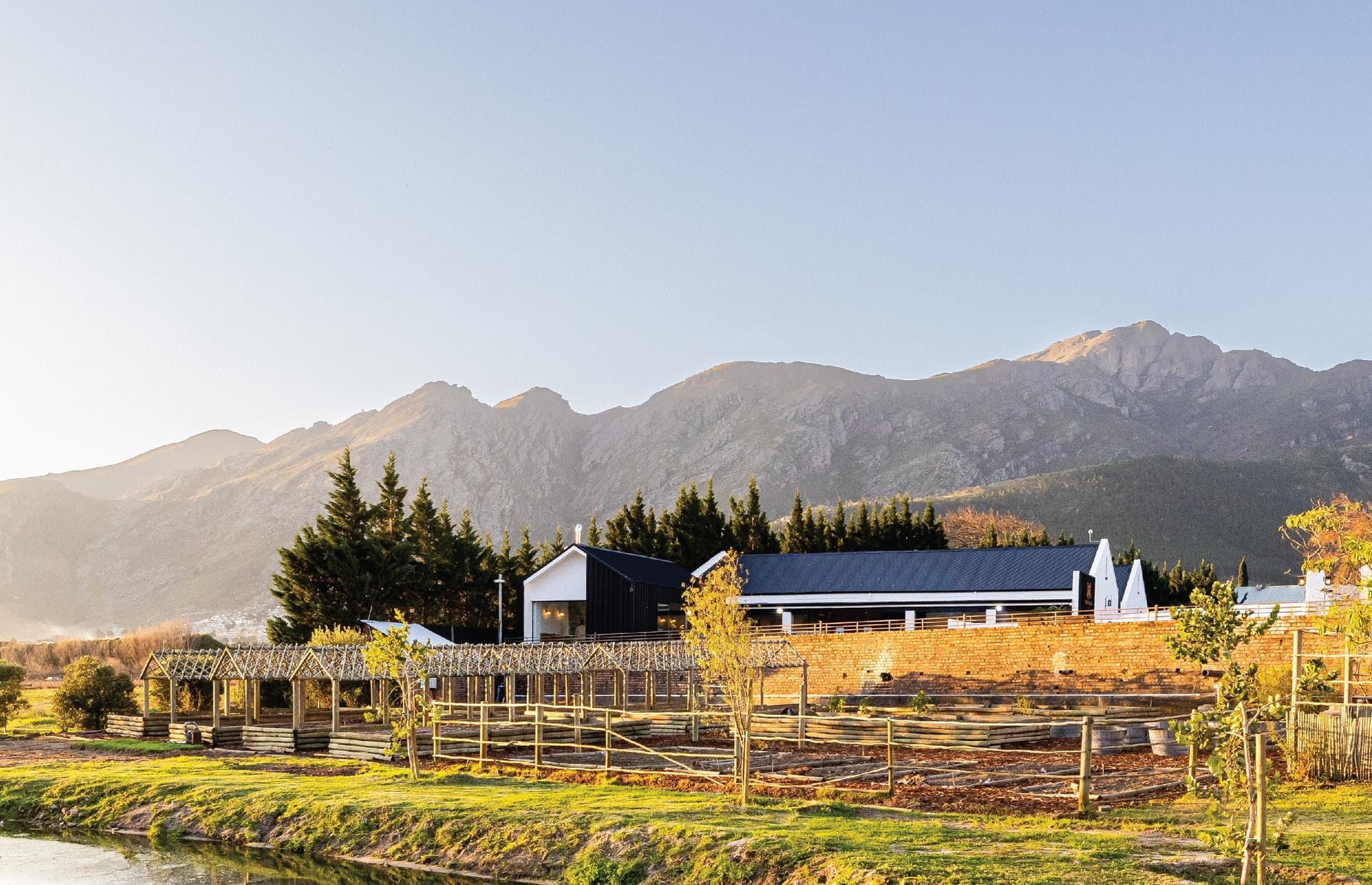
Backsberg Estate Cellars, also located in the Paarl region of South Africa, is known for its proactive approach to environmental sustainability, becoming the third winery in the world to achieve Carbon Neutral certification.
The estate utilizes sustainable practices like solar power and lightweight bottles to reduce its environmental impact, alongside water conservation measures and a tree planting program.
Sustainable Wineries in Australasia
Yealands Wine Group (New Zealand)
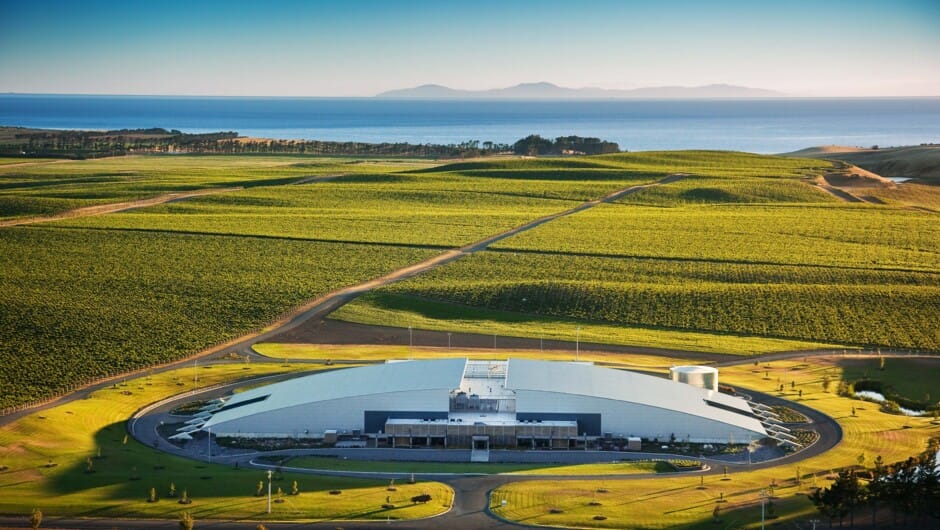
Yealands Wine Group from Marlborough, New Zealand, is one of the leading sustainable wineries in the world, known for its pioneering spirit in sustainability.
The winery is carboNZero certified, meaning they measure, reduce, and offset greenhouse gas emissions.
Innovative practices include using sheep to control grass and weeds in the vineyards, generating energy from solar panels, and utilizing byproducts like vine prunings to generate renewable energy.
Their wines are celebrated for their crisp and vibrant flavors, particularly their Sauvignon Blanc.
Kalleske Wines (Australia)
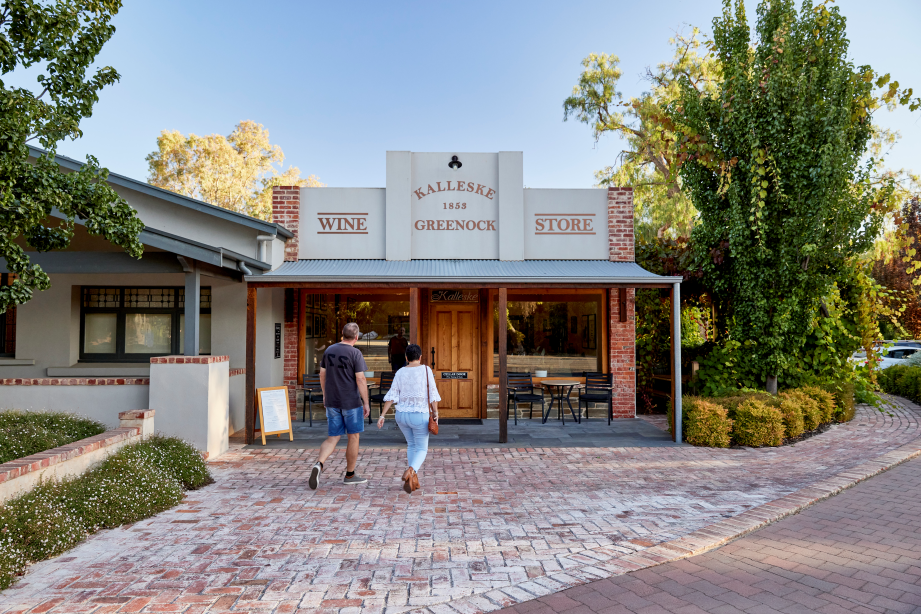
Kalleske Wines in Barossa Valley, Australia, is certified organic and biodynamic, with a history of grape growing dating back to 1853.
They employ traditional winemaking methods combined with environmentally friendly techniques to manage their vineyards without the use of synthetic chemicals.
Kalleske’s portfolio includes powerful Shiraz and delicate Rieslings, well-regarded for their depth and integrity.
Cullen Wines (Australia)
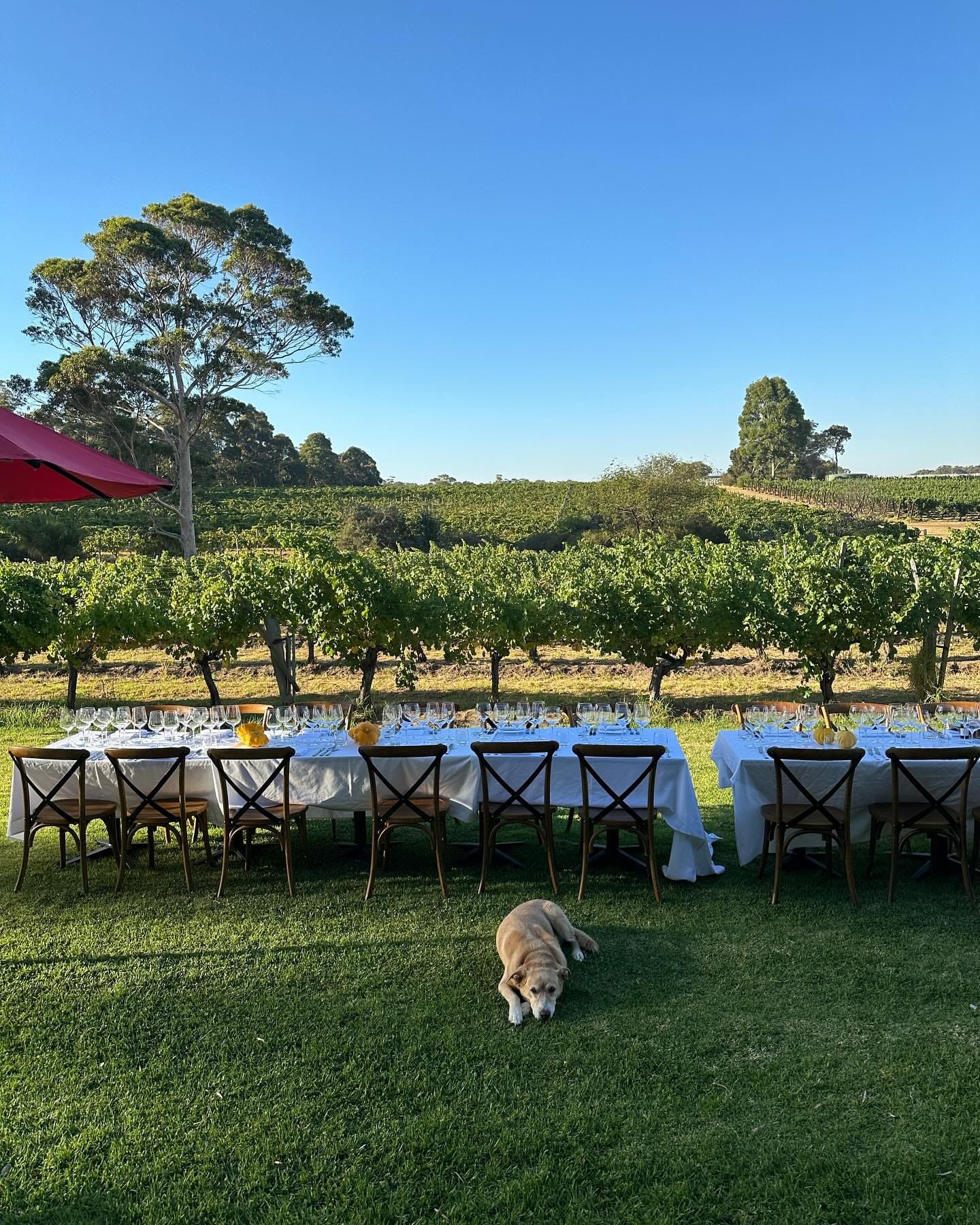
Cullen Wines, located in Margaret River, Western Australia, is a pioneer in biodynamic winemaking in Australia. The winery follows a philosophy of ‘quality, integrity, and sustainability,’ fully certified biodynamic and carbon neutral.
Their environmental efforts include natural pest management, using compost as fertilizer, and reducing water use.
Cullen Wines produces exceptional Cabernet Sauvignon and Chardonnay, recognized globally for their quality.
Rippon (New Zealand)
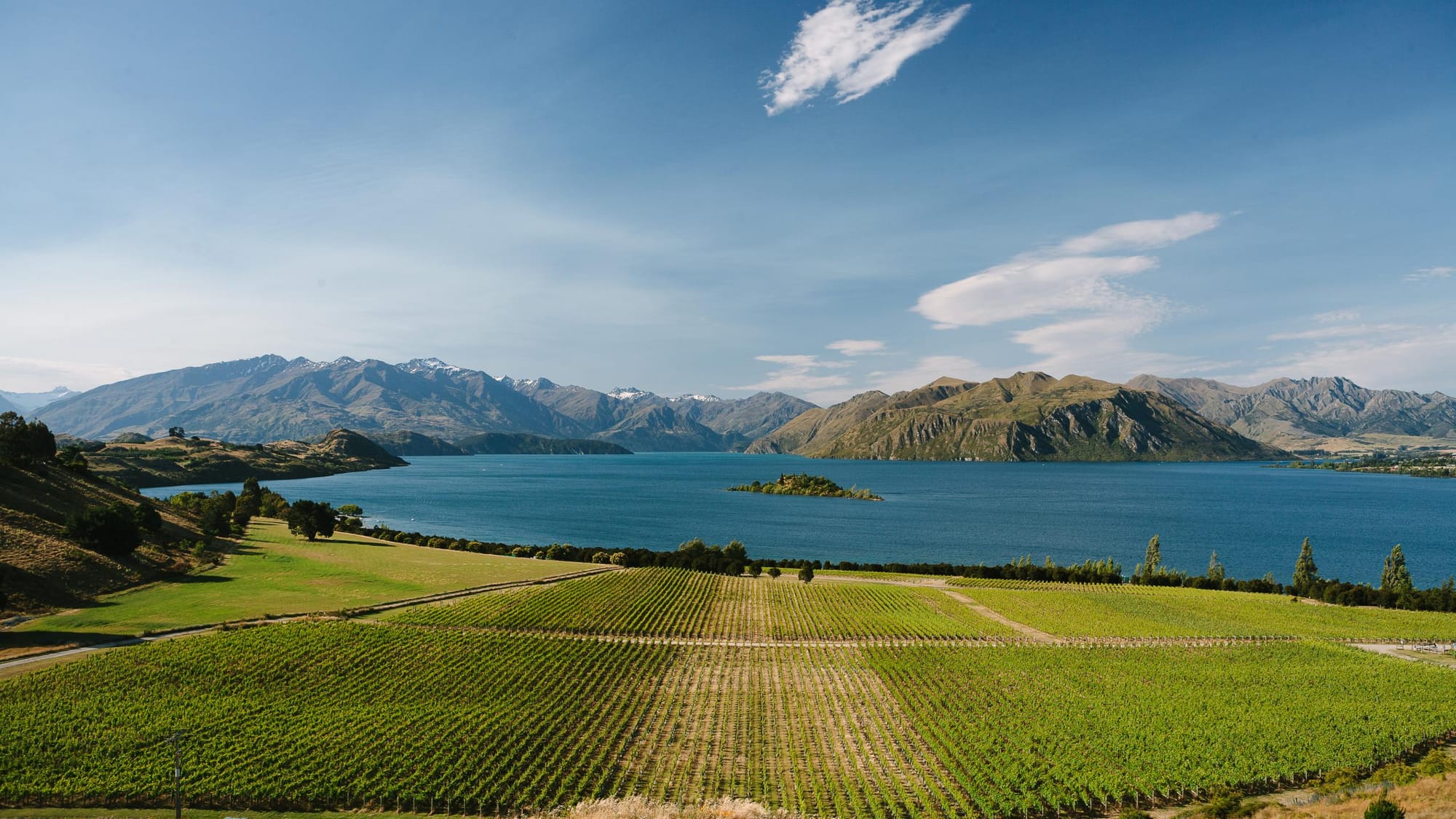
Rippon on the shores of Lake Wanaka in Central Otago, New Zealand, is one of the most picturesque vineyards in the world and equally committed to sustainable winemaking.
The family-owned estate has practiced biodynamic farming for many years, fostering a holistic balance in their vineyard ecosystem.
Rippon is renowned for its Pinot Noir, which reflects the purity and intensity of its alpine terroir.
Giesen Wines (New Zealand)
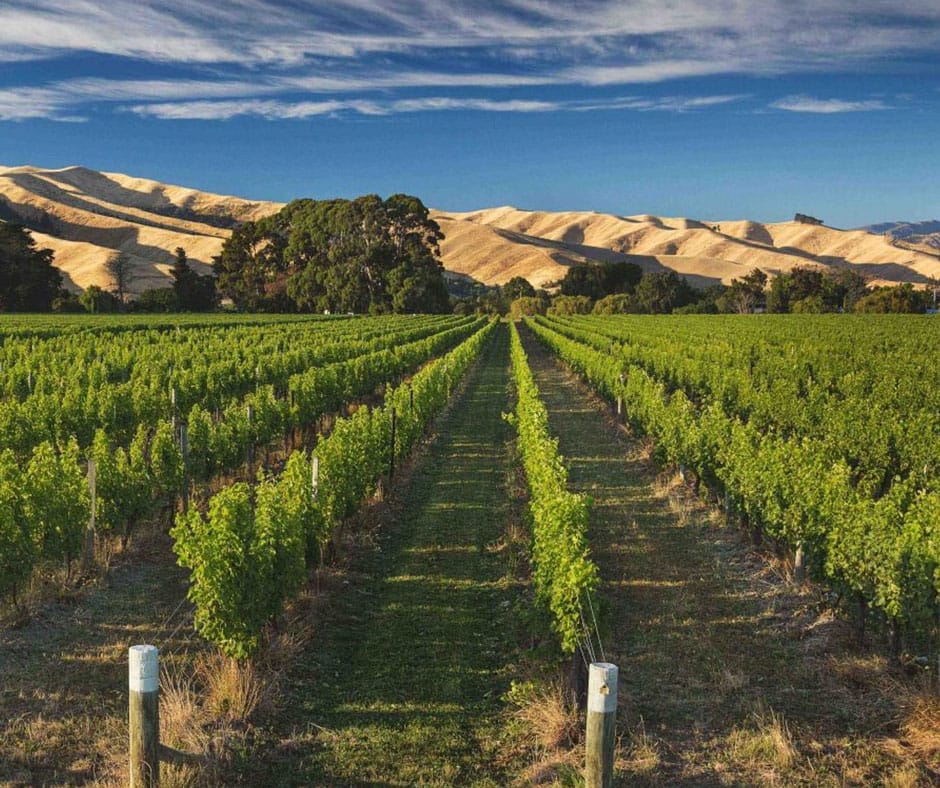
Giesen Wines, also in Marlborough, New Zealand, is committed to sustainable wine production, with a focus on achieving organic certification for all their vineyards.
They utilize sustainable winegrowing practices such as using organic matter for composting, managing vine health naturally, and reducing energy consumption in their operations.
Giesen’s Sauvignon Blanc is particularly popular, known for its freshness and vibrant fruit flavors.
These wine brands from Australasia not only deliver exceptional wines but also lead the way in sustainable practices, showing a deep respect for nature and a commitment to preserving their unique landscapes for future generations.
In Summary
In summary, the journey through the world's most committed sustainable wine brands showcases how viticulture can harmoniously coexist with the environment.
From the rolling vineyards of Europe to the dynamic landscapes of South America, and the diverse terroirs of Australasia, these wineries are not just crafting exquisite wines; they are leading the charge in ecological stewardship.
Brands like Château Pontet-Canet in France, Silver Oak in California, Emiliana in Chile, and Yealands in New Zealand exemplify the potential to produce world-class wines while prioritizing the health of our planet.
These wineries leverage innovative, sustainable practices—ranging from biodynamic farming to advanced water and energy conservation techniques—demonstrating a global commitment to future-oriented winemaking.
They provide a blueprint for how the wine industry can reduce its environmental footprint and educate consumers on the importance of sustainability.
By supporting these eco-friendly wine companies, consumers contribute not only to the preservation of local ecosystems but also to a global movement towards more sustainable agricultural practices.
As we continue to savor and celebrate these exceptional wines, let us also commit to making choices that ensure the longevity and vitality of our planet's natural resources.
For wine lovers around the world, these sustainable brands offer an opportunity to indulge in a passion for wine while fostering a more sustainable future.








